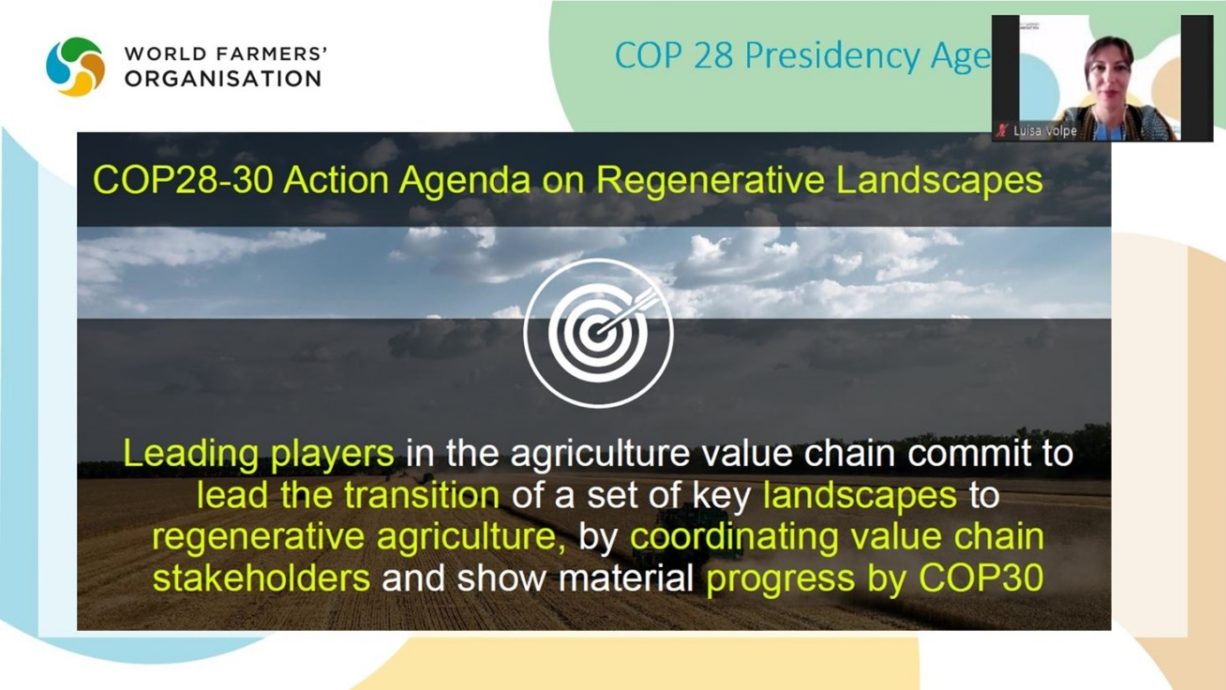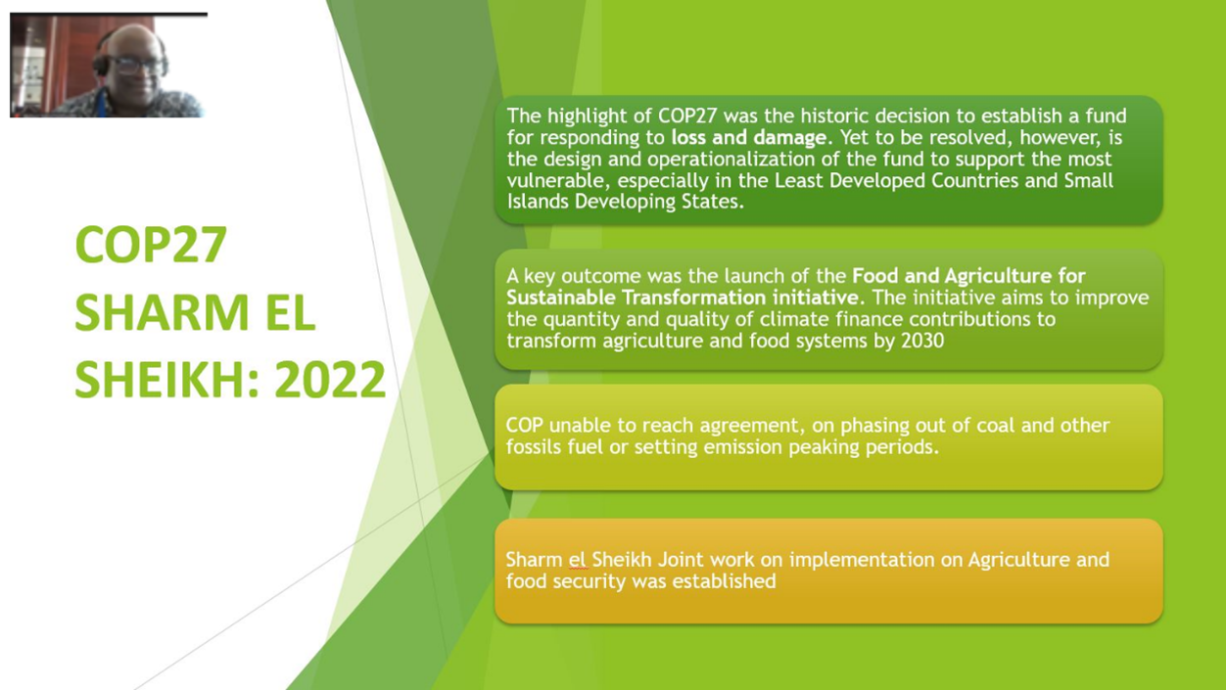
At the request of the apex organisations of African farmers, AHA supported the sending of representatives to the COP27 in 2022. The support was coordinated by the WFO and financed by the Federal Ministry for Economic Cooperation and Development Germany through the global project “Strengthening Farmers’ Organisations”. In the run-up it already became clear that the processes and contents of the United Nations Framework Convention on Climate Change (UNFCCC), the Paris Agreement and the COP are so complicated that many representatives do not know and understand them in depth. This led to the need for further training for farmers’ representatives at national and regional levels.
In early 2023, the Pan-African Farmers’ Organization (PAFO), WFO, the Finnish Agri-Agency FFD and AHA developed a joint concept for an online seminar series to prepare representatives for their role in the various negotiations. In ten sessions, experts present relevant topics to a group of 30-40 CEOs, elected representatives and technical staff and then discuss them together. The first session was given by James Murombedzi, climate expert of the United Nations Economic Commission for Africa. He explained the background to the UNFCCC processes, milestones in the past COPs, as well as pending relevant decisions. In the second session, Ceris Jones, Climate Change Advisor to the British Farmers’ Union and Farmers Constituency contact person, addressed the Bonn Climate Conferences of the COP sub-bodies and their relevance to farmers’ goals. At the end of July, Luisa Volpe, Head of Advocacy, Policy and Partnerships at WFO, led participants on the road to COP28 (December 2023) and explained its agenda and objectives in detail. The valuable presentations will be put online for the benefit of a larger number of interested people.

In the coming months, further experts will provide participants with theoretical knowledge and relevant experience on existing mechanisms and agreements as well as on the possibilities of influencing the UNFCCC processes, lobbying and negotiation strategies. The aim is to empower participants to adequately represent the interests of farmers and to strengthen and unify the voice of agriculture in the (pre-)negotiations at national and international level before the COP28 in Dubai in December. After the first three sessions, we are looking forward to the presentations of the next experts and fruitful joint discussions.
Are you interested in the topic and would you like to watch the previous sessions? Then feel free to have a look at the PAFO YouTube channel.
This could be of interest to you:
-
International Cooperation -
International Cooperation How NWAB in Zambia is forging stronger ties with its members
Read -
International Cooperation Young agricultural stars in western and southern Africa
Read